Student Blog
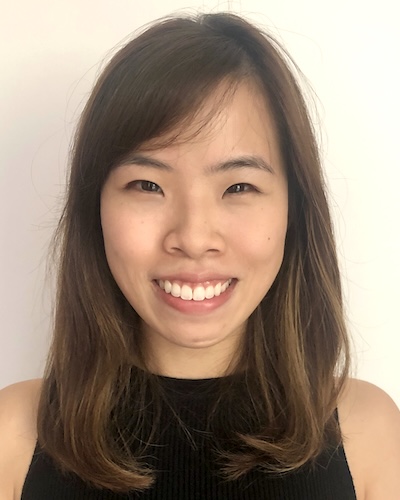
Taking my first exam, more than a decade later ⟩
November 12, 2024, by Tanya
Beginnings and Endings Classes International
The anxiety that hit me on the morning of my first exam in a long time was one I had not experienced, one that felt so foreign. Perhaps it is because I was not used to it as it has been a while, and not to sound dramatic but it felt worse than going for a job interview or presenting in front of a large audience. Everything felt so uncertain and unexpected, and I, as a person who valued control and preparedness, felt quite lost and nervous.
Even the platform that the exam was on seemed foreign, with the entire exam being digitalized. This is a stark contrast from the days when my biggest worry was that I had multiple sharpened 2B pencils to shade the correct option in a multiple-choice exam. I was amazed that the paper could be downloaded before the commencement of the exam, and the exam software came with tools such as the highlighter and timer visible on your screen.
I was overcome with a sense of relief mixed with anticipation of how I performed once I saw the green screen notifying me that the submission was successful on my screen.
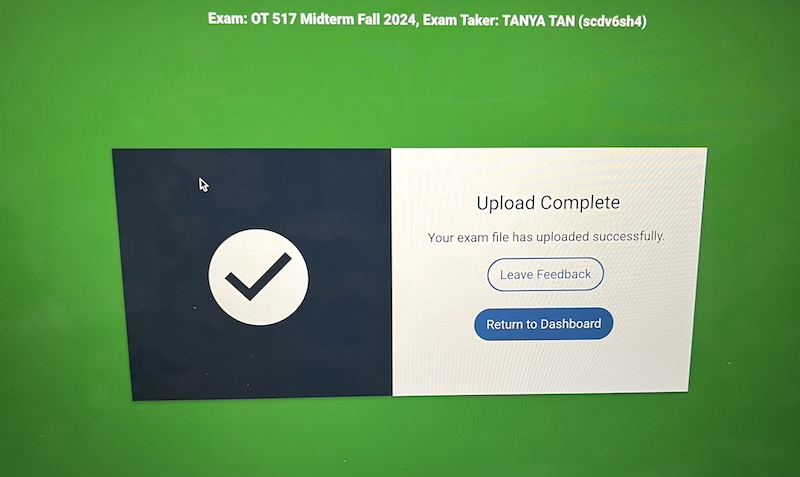
After my first Sensory Integration mid-term exam — taken with permission from Dr. Gunter upon submission
Given the option, I would have much preferred to have written a paper instead, as this would have allowed me to weave in my thoughts and opinions supported by evidence. When I reflected on the entire experience, I would say my anxiety stemmed from the unfamiliarity of the advancement in technology as well as the entire examination process that felt so foreign rather than the actual content. And this was yet another way for me to learn how to adapt to changes and move with the times.
If you have not been on the academic journey for some time, here is what I did to help deal with these changes. It did not remove the nerves completely, but it helped me settle into it faster.
1. Having stationaries that help with note-taking
If you are like me and prefer to organize and write down notes on paper to visualize the information learned, it will be helpful to bring some writing implements or sticky notes that you are used to back home.
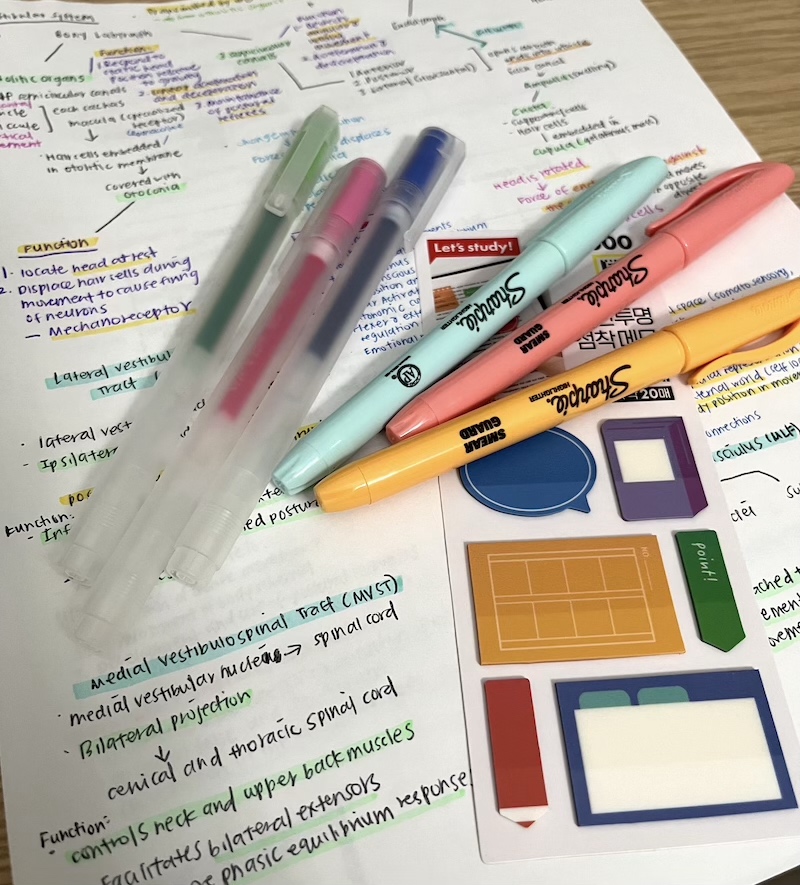
Some of my writing implements that I brought over from Singapore
2. Follow your usual sleep pattern
Hearing some of my classmates share about the later times they sleep and how they feel more efficient or productive, made me consider this choice and attempt it. I usually head to bed by around 11 pm and decided to try staying up till 1 am. Sad to say, this was counterproductive, and I was less efficient and felt even more lethargic over the next 2 days. Know your body system and do what is best for you, you do not have to change your routines despite adopting a new role.
3. Enjoy leisure amidst the exams and assignments
Along with midterms also come assignment submissions, this can be a lot, and you may feel overwhelmed by it. It may feel that every minute should be channeled to studying or reading another article, however, engaging in leisure does clear your mind and refreshes you. It is the little things that can have a greater impact.
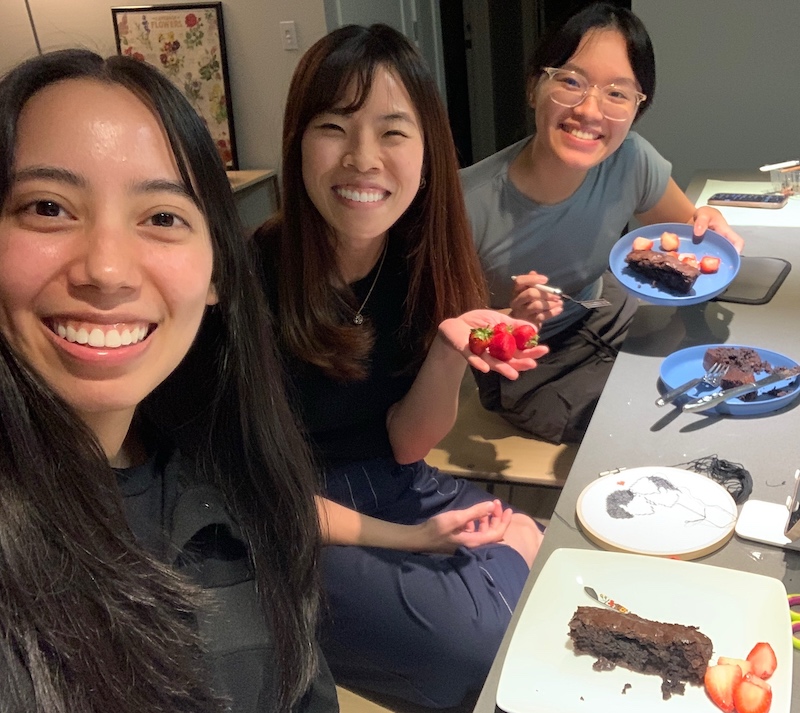
Here is a picture of my housemates and I enjoying the brownies that we baked. It took longer than expected but it allowed us to chat, laugh, and relax while enjoying the process.
4. Planning ahead to ensure you have sufficient groceries
I usually travel on the bus to get my groceries over the weekend, as it is nice to browse and select my items. However, it can be a little time-consuming when it is ‘crunch time’ due to the additional time spent on commuting. It is helpful to plan and purchase additional groceries with a longer shelf-life to last for the upcoming week. Another helpful way is to purchase your groceries online. There are various stores online, such as Instacart, Weeee, etc that are helpful when other factors are deterring you from going out.
5. Be a little more courageous
That’s what I tell myself when I do not understand the concepts or have questions about the topic being taught in class. It could be my personality or how I am used to academic lessons back home that make it more challenging for me to ask questions. However, I would encourage you to raise your hand and ask, or go to an office hour appointment to clear the doubts that you may have. If you don’t, the person that is at the losing end will eventually be yourself. As they say, knowledge is power, so do not leave the module with an unanswered question.
Despite various deadlines that you need to meet, it is important to stop and pause, and also look at your surroundings as you commute on the shuttle bus or to your apartment. LA has very beautiful sunsets and skies, but you will miss it if you are just focused on thinking about your to-do list.
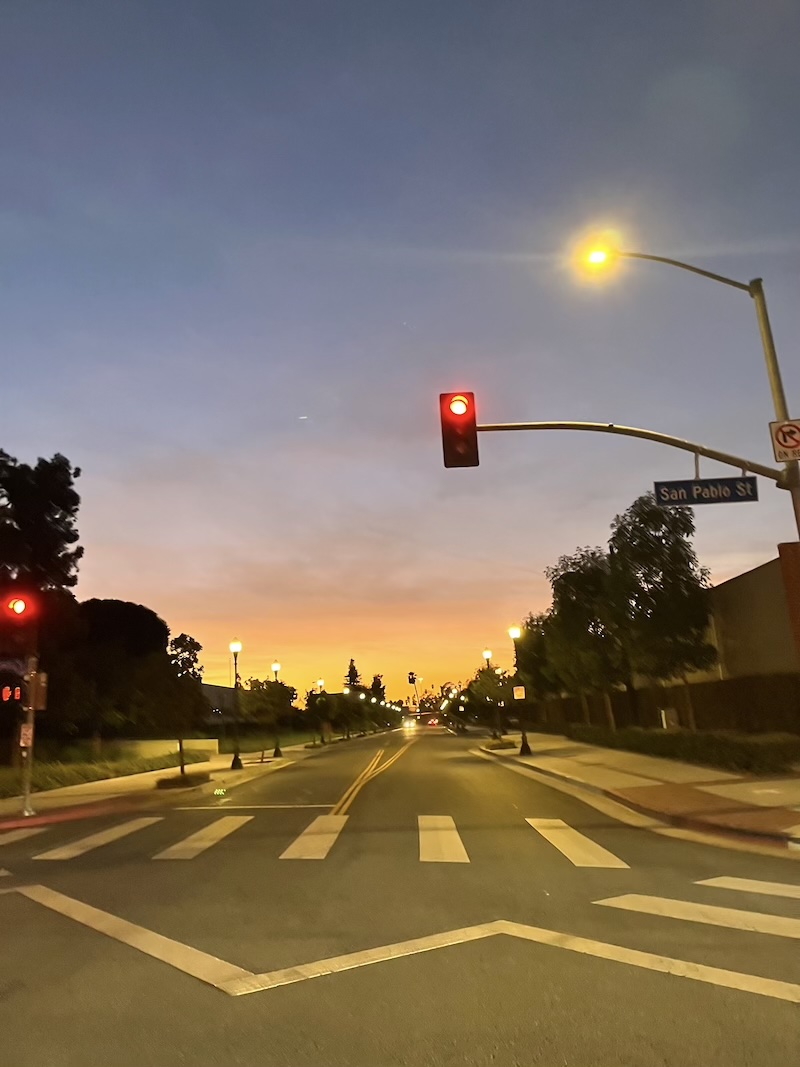
Sunset on the way to an evening class
⋯
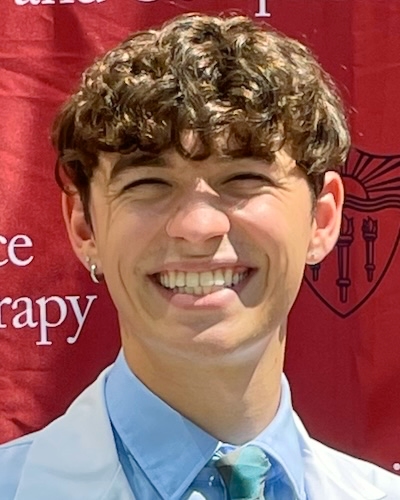
A Story You Won’t Forget ⟩
November 8, 2024, by Mason
College admissions can be stressful, in fact when I think back about my high school years I can say without a doubt that the college search and application process was one of my most stressful moments. One of the hardest parts about it, at least for me, was the sheer number of people telling me different things to focus my energy and attention towards. I had my parents whom I desperately wanted to make proud, my older sister who was already succeeding in college, high school ‘college counselors’ who thought I shouldn’t tunnel vision my aspirations solely on occupational therapy, and of course all of those supposed “admission experts” on youtube describing ground breaking news on how to get into a top school. Everyone always had something to say, some magical advice, and having to sift through all of it was exhausting. College applications often force you to define yourself in a few short pages, and I for one was often left feeling inadequate putting my whole life down on a page.
A little about me, I had the privilege of earning a paid work study job at USC’s Office of Admissions. There I served as a student ambassador and tour guide for all 4 years of my undergraduate education. There were many great benefits and takeaways from my experience in the position, but for the sake of staying on topic I will stick to what’s relevant. Across my years in the role I was able to work directly under several fantastic admissions counselors who not only acted as my bosses and mentors, but also openly shared with me an honest window into the college admissions process at USC. My supervisors were some of a large number of USC counselors who directly read applications and played a key role in the admissions process. I cannot speak for other universities, but I think the most interesting thing I realized throughout my time learning from them is how human the college application process really is. When you are in high school and applying to these big trailblazing universities it’s easy to forget that at the end of the day there is a human being reading your application. A real person who feels, empathizes, and hopes to connect with each and every student they learn about. When any of my co-workers or myself would ask our supervisors what is the best advice we should give to prospective USC students on an application or college essay, they would always tell us the same thing:
Tell us a story we won’t forget.
So what is my magical advice you might ask? What secret golden ticket am I offering to you today. The best advice I can give to anyone about applying to USC or any college for that matter, is to be your most honest and authentic self. It’s so easy to get swept up in the narrative of trying to make yourself into a person that college’s “want” to see. Whether it be through the extracurriculars you engage in, the classes you take, or the essay you use to paint a picture of yourself, let your true narrative and story guide your application. If you take the time to create something that reflects the beauty and passion of your unique human experience I guarantee you it will stick with a person better than trying to model some unattainable paradigm.
My favorite thing about occupational therapy is that each and every patient you see has a different story, a different meaning that they derive from the activities that fill their life. Let your meaning shine through your work, and always remember that there is never just one path to your future goals. If the first path you choose closes, take a deep breath and head down the next one that comes your way.
That’s all for now, and Fight On!
⋯
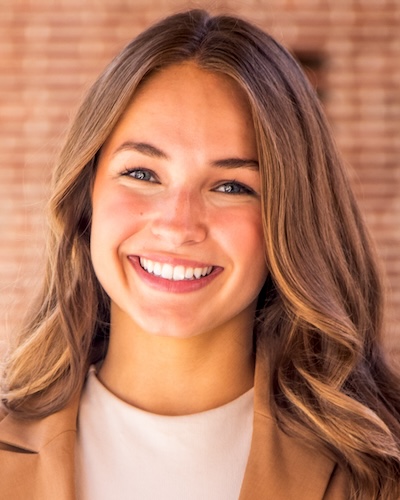
How to Find Scholarships (yes, you qualify!) ⟩
November 5, 2024, by Avery
Admissions Life Hacks School/Life Balance
Let’s be honest — education is expensive, especially at USC. That first time you open your financial aid report can be scary and overwhelming. The weight of potential debt and student loans is daunting, and for many of us, staying in school requires tough sacrifices and working multiple jobs just to make ends meet.
One thing that many students don’t realize however, is just how much free money is available to them in the form of scholarships! I’ve heard it all:
“Oh, I don’t think there’s a chance I would actually win the scholarship.”
“I didn’t realize that I qualified!”
“Wait, I didn’t know this many scholarships were out there!”
“I don’t want to take the time to apply when I could be doing other things or just working a job instead.”
In reality, there are numerous independent organizations that WANT to give you their money so that you can pursue your education. Sometimes, it just takes a little digging to get there! I’ll be honest, taking the time to write the essays, figure out the deadlines, and get letters of recommendation is time consuming. This can feel overwhelming and exhausting, especially with the constant demands of schoolwork as a full-time student. However, at the end of the day, the rate of return on these awards is HIGH. Let’s say you spent 3 hours applying for a $500 scholarship. That equates to earning over $160 an hour. Now imagine if that is a $1,000 application? $5,000? It quickly begins to feel like the time applying for scholarships is being much smarter spent than working a few extra hours at a minimum wage job.
So, where to start? I like to begin by researching scholarship opportunities specific to the area where I am from. While many of these local scholarships are only available for high school seniors, I was really surprised to find out my freshman year that quite a few of them have money available for those already in college as well. These awards are great as they are designated only to a specific area or field, meaning less people can apply = you have a better chance of receiving the money.
Now let’s look towards USC specifically. To begin, when applying to USC (undergrad or OT school), be sure to hit that November 1st EA deadline so that you can be considered for the large merit-based scholarships that are available.
The Chan website has links to resources of external scholarships. The list is long, which means there have to be at least a few you qualify for. My advice is to open a Google Spreadsheet, make columns to label the due date, amount, name of award, link, and basic things needed to apply (essay, letter of rec, transcript, etc). Then, go through every award and add any to your spreadsheet that you meet the criteria to apply to. This will keep you organized and will help to not let any deadlines sneak up on you.
![]()
Here is an example of what my scholarship tracker spreadsheet looks like
Chan has a page with resources for their internal scholarships. Add these to your spreadsheet as well.
USC also has several scholarships for those engaged in unpaid research. Check out Dornsife’s SOAR-SURF-SHURE scholarships, as well as Chan’s Occupational Therapy Student Research Fund. These can be incredible opportunities to learn and be involved in something that interests you academically, add to your professional resume, and get ‘paid’ simultaneously.
Next, put together a list of companies you have ties to. Think about places you work, shop, where your family and friends work, where you do your banking, non-profits you volunteer at, etc. There’s a good chance one of these organizations has an annual scholarship award.
Finally, many scholarship search engines exist such as scholarships.com and fastweb.com, where you can filter your search based on your area of study and demographics.
Keep track of those deadlines, and happy applying!
⋯

12 Tiny Habits That Transformed My Life in 6 Months as a Student ⟩
October 29, 2024, by Jowy
Hi there! I’m Jowy Cenat, and today I’m sharing the small, consistent habits that changed my life over the last six months. These might seem simple, but trust me — they’ve been game-changers.
“Simplicity is the ultimate sophistication.” — Leonardo da Vinci
1. Two minutes of jump-rope:
No need for an intense workout first thing in the morning. Two minutes of jump rope gets my heart pumping and my mind awake. It’s quick, easy, and surprisingly powerful.
2. Stepping outside:
Nothing beats stepping outside for a bit of fresh air and sunlight. It’s become my morning ritual for alertness and grounding. I’ll sometimes combine this with the jump rope for a two-for-one!
3. Revewing my goals:
Taking a few moments to look over my goals reminds me of what I’m aiming for. It’s like a reset that refocuses my mind and makes those long-term plans more achievable.
4. Reading a passage in the morning:
Instead of checking my phone first thing, I read something inspirational or philosophical. It’s a nice mental start to the day before the notifications start rolling in.
5. Practicing gratitude:
A few moments spent reflecting on what I’m grateful for grounds me. Gratitude has shifted my perspective, helping me start each day feeling more positive and centered.
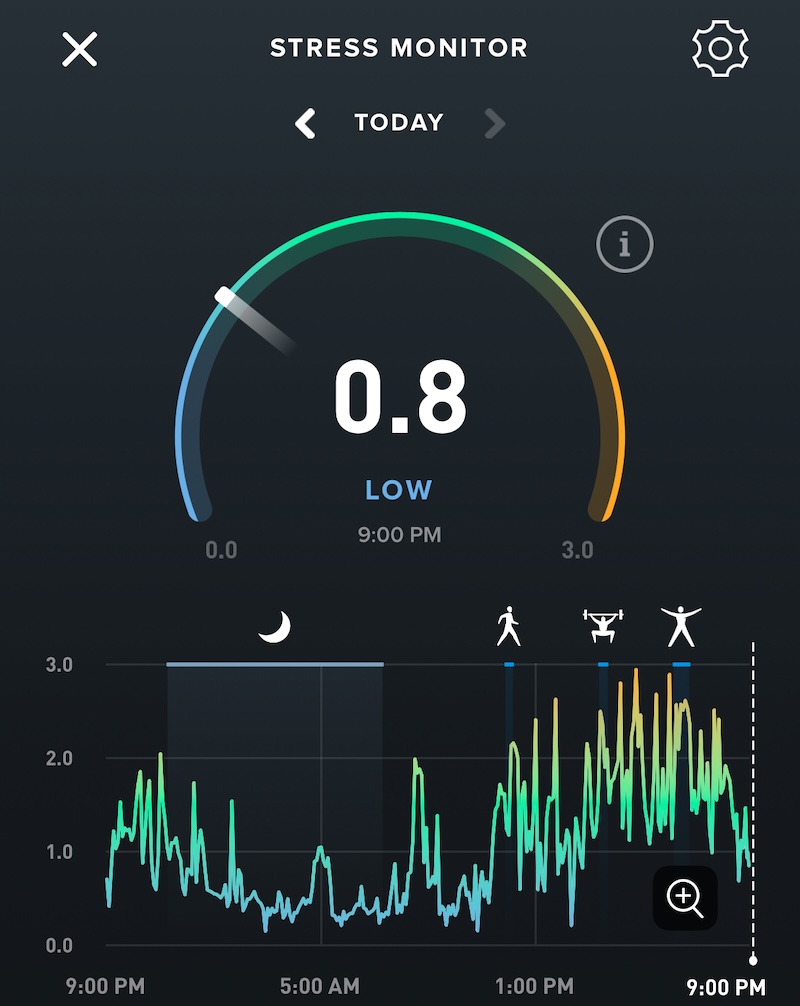
6. Ending the day with a reflection:
I take a few minutes every night to reflect on the day — what went well, what could be better. This habit has been a great way to learn from each day and to let go of what didn’t work.
7. Keeping a reading habit:
I made it a point to read something every day, even if it’s just a few pages. The consistency has kept me curious, entertained, and always learning something new.
8. Setting micro-goals:
Breaking down big goals into smaller steps has been empowering. Each completed step brings a little victory, making the bigger picture feel achievable.
9. Walking 13,000 steps a day:
Getting my daily steps in has kept me active and energized. Sometimes it’s through a workout, other times just through exploring a park or neighborhood. The movement has done wonders. I was born in NYC, and unfortunately, I miss the walkability of the city.
10. Prioritizing sleep:
I started tracking my sleep and making it a priority. Once I realized how big of an impact rest has on my productivity and mood, it became non-negotiable.
-Sleep-
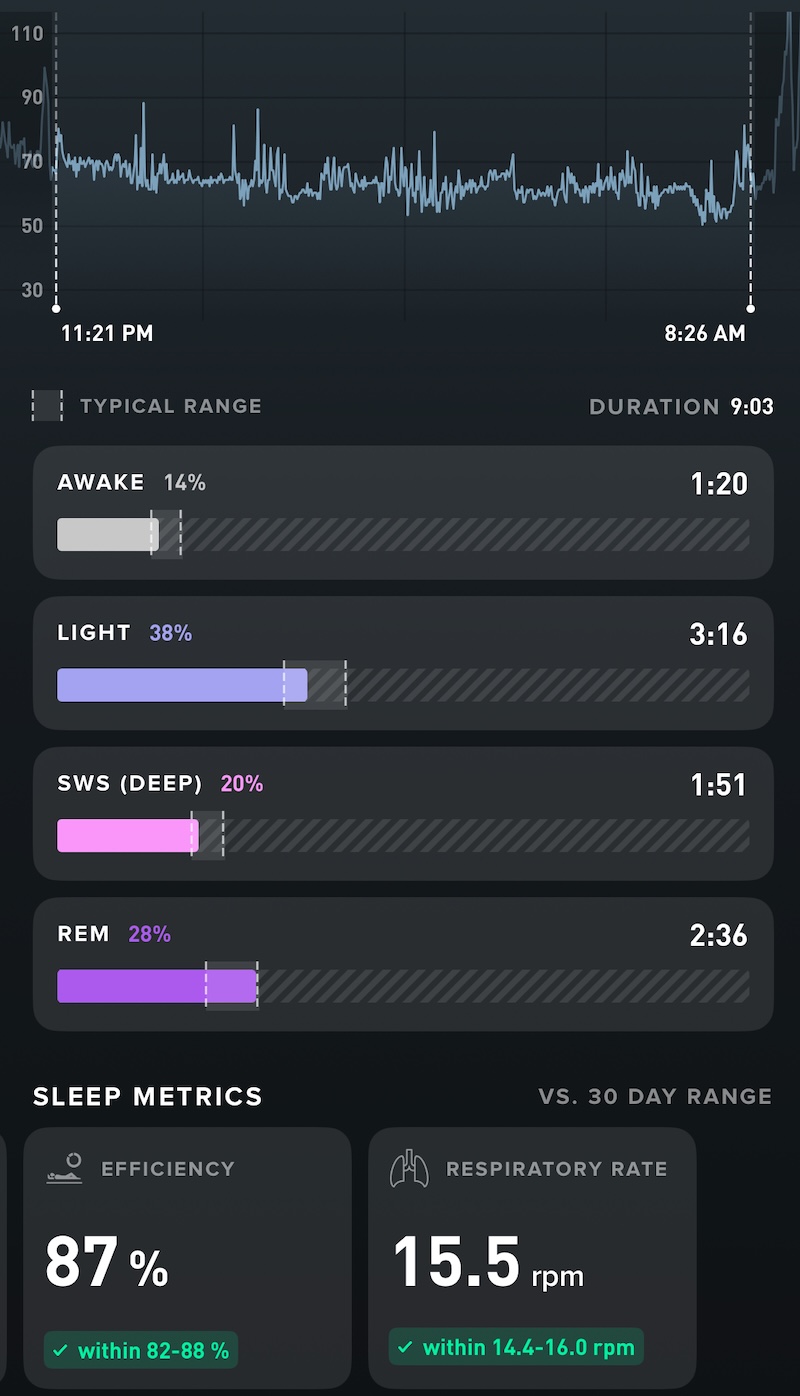
11. Celebrating small wins:
Finally, I learned to celebrate the small wins. Whether it’s hitting my daily steps or finishing a task, I let myself feel proud of those moments. They keep me going and remind me that progress is being made.
Bonus:
Implementing these habits has been an incredible journey. They might seem small, but the impact has been huge throughout my time in the program. Having my own habits, best practices, as well as learning from various courses, like health promotion or lifestyle redesign has been a game changer. I hope you find something here that inspires you!
*If I were to add another #12, I’d say boba + matcha is a tiny habit. Just a small habit . . . but let’s be real, life is better with a little boba and matcha in the mix!
⋯
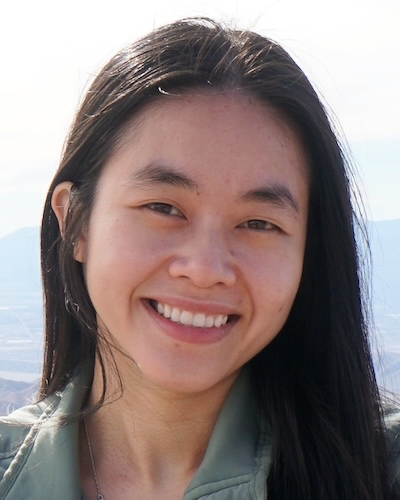
My Mental Health and How It Led Me to OT ⟩
October 22, 2024, by Dana
Beginnings and Endings First-Gen
As an immigrant, the idea of the “American Dream” was the main path that every immigrant aimed to achieve. All my life, I was told to keep learning and going to school to achieve higher education so that I can make more money and live that “American Dream”. So, being in an Asian immigrant household, I was expected to become a doctor, lawyer, engineer, or entrepreneur of some sorts in high positions. My first time ever where I thought of a career path for myself was in middle school. Low and behold, I thought of becoming a lawyer. I had this immense confidence that I could argue anything and everything with those around me whenever I disagreed with them. However, that did not last very long when high school came along and my confidence and mental health plummeted.
High school was an interesting time, but it was also a traumatizing time for me that is buried all the way in the back of my mind. I was not given sufficient guidance nor opportunities to explore what I potentially wanted to do in the future. It was a time where academic excellence was ingrained in my mind by my parents and teachers. Excelling in classes and engaging in educational organizations were the priorities of what other people wanted for me. It took me some time to process, after the fact, that that was one of the causes of my mental downfall. In addition, a huge life event of my mom passing away during my sophomore year created even more mental turmoil. As much as I expressed what was happening to me in my high school, they wanted me to focus on strengthening my college applications with grades, standardized tests, and personal development. Ironic because the only personal development my high school allowed was to develop our academic skills. With no guidance there, I fought to find my own path.
Getting past the grief of my mom being gone was what felt like the longest mental journey of my life. However, her passing sparked my love for healthcare. There were some things I wished the healthcare system could have done for her to increase her quality of life by maintaining her independence and promoting occupations in which she could still engage in. Watching her lose all her ability to do things for herself was difficult as a teenager because I had seen her do almost everything for our family. Because my high school wasn’t helping me explore career paths, I took it upon myself to research healthcare professions that aligned with my values and goals of helping people with terminal conditions have some independence and internal satisfaction with what they can do while they are still alive. With extensive research, I came across Occupational Therapy.
I didn’t follow the traditional path that was expected of me, but I found something better: a career that aligns with my values, one where I can help others maintain their dignity and independence, just as I once wished for my mom. Occupational Therapy became more than just a profession — it became a way for me to honor her, and in some ways, to heal myself.
⋯





